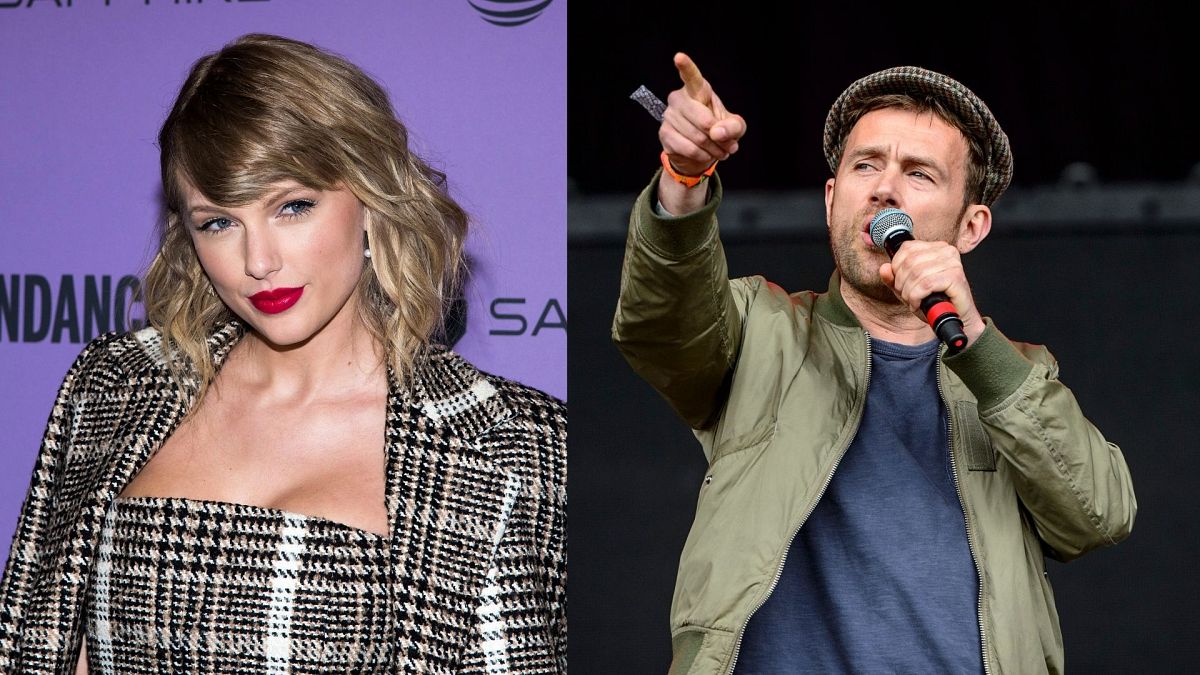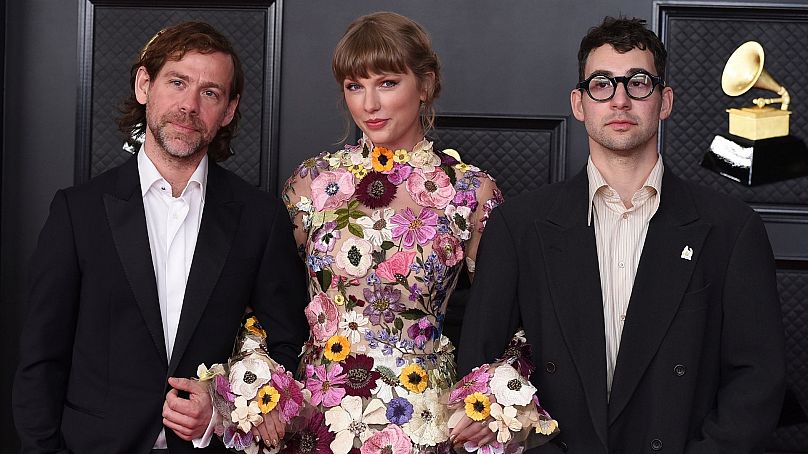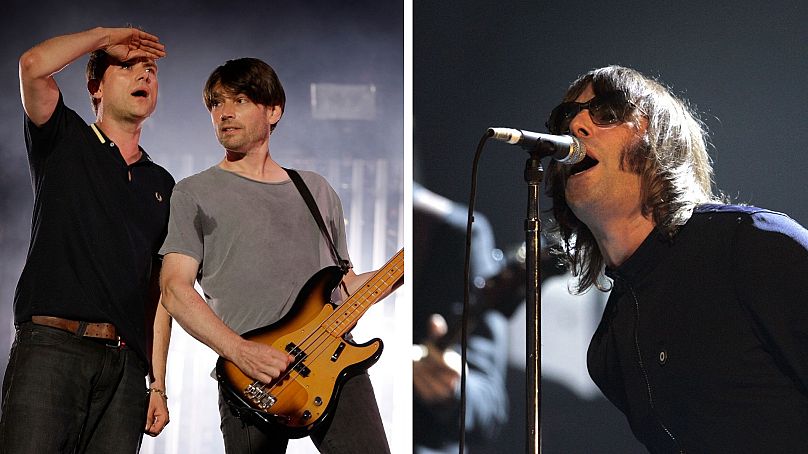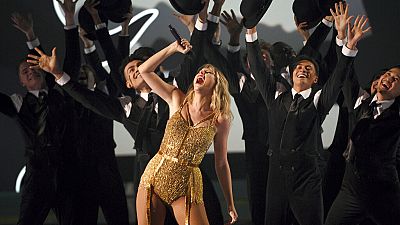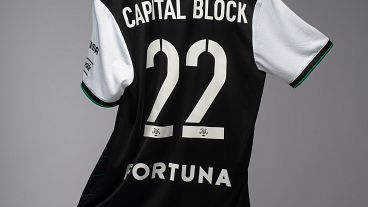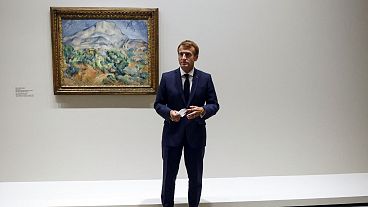The 32-year-old made a monumental statement on her seldom-used Twitter account against the Blur frontman. But what did he say, and why?
Taylor Swift has defended herself against "completely false" comments by Damon Albarn suggesting she "doesn’t write her own songs".
The singer made a rare appearance on Twitter to defend herself against the the Blur and Gorillaz frontman's "damaging" claims made in an interview with the Los Angeles Times to promote a concert in the area.
Swift – who has nine studio albums under her belt at the age of 32 – addressed the Britpop giant on the platform directly.
Her retort read: "I was such a big fan of yours until I saw this. I write ALL of my own songs. Your hot take is completely false and SO damaging. You don’t have to like my songs but it’s really f*cked up to try and discredit my writing. WOW."
The interaction marks the biggest pop culture controversy of 2022 so far, with politicians (including Gabriel Boric Font, newly elected President of Cuba and famous Swiftie), collaborators, and impassioned fans stepping out in support of the artist.
But how did this situation escalate so quickly? And were Albarn's comments woefully misguided, misinterpreted, or based on actual evidence?
Euronews Culture explains all below.
How did the war of words between Albarn and Swift begin?
The Blur and Gorillaz frontman told the Los Angeles Times in an interview published on January 23 that the prolific popstar's "endlessly upbeat" music was an example of artists hiding behind "sound and attitude".
"She doesn’t write her own songs," he argued.
He went on to double down on his comments, shutting down the interviewer's defence that the 32-year-old artist self-pens or co-writes all of her songs.
"That doesn’t count," he said. "I know what co-writing is. Co-writing is very different to writing. I’m not hating on anybody, I’m just saying there’s a big difference between a songwriter and a songwriter who co-writes."
Pivoting to a wider discussion about songwriting, Albarn disparagingly compared the performer to her peer, 20-year-old Billie Eilish. Albarn expressed that Eilish's music was "exceptional" – despite engaging in the same songwriting practices as the artist he was critiquing.
"A really interesting songwriter is Billie Eilish and her brother. I’m more attracted to that than to Taylor Swift. It’s just darker – less endlessly upbeat. Way more minor and odd. I think she’s exceptional."
With this came an almighty social media uprising against the musician's comments that is still ongoing.
Does Taylor Swift write her own songs?
In short – yes. It doesn't take a superfan of the singer to know she is widely respected by (most of) her industry fellows and much of this is rooted in her obsession with the craft of songwriting.
It is arguably a large part of her brand. From lengthy voice memos exploring the genesis of some of her biggest songs to detailed CD and vinyl booklet clues denoting where she sourced her inspiration, fans and critics enthusiastically engage in decoding where each artistic and narrative choice comes from with each new release.
Publishing records show there is not a single track by the singer released without her co-sign.
Over her 18-year career, 50 songs have been published exclusively under her name.
Aged 20, the singer was trusted by her former label Big Machine to release 'Speak Now', a multi-platinum country-pop crossover without a single co-write.
Tackling the singer's relationships with fellow musicians Joe Jonas and John Mayer, as well as addressing the fallout from her first big scandal – the Kanye West VMAs incident – the album went on the become a multi-platinum record and is the best selling entirely self-written album on digital platforms of all time.
However – that's not to say she hasn't historically collaborated with many different songwriters since.
Are Albarn's comments technically true if Swift does use co-writers?
Not exactly. Albarn's comments likely come from a place of experience wherein popular artists in the music industry use co-writers in hundreds of different ways.
A co-writing credit on a song could mean anything from the artist contributing a couple of chorus lines to a song presented to them by seasoned producers, to spending weeks, if not months, closely collaborating on an idea they already have with other people.
The reason Albarn's comments have incensed friends and Swiftie's alike is because, in their eyes, she falls firmly into the latter group.
Swift has expressed her frustrations about this assumption in the past, dating back to a 2014 interview with Time Magazine.
She said working with close friend Ed Sheeran made her realise they were perceived very differently as songwriters.
"My friend Ed, no one questions whether he writes everything. In the beginning, I liked to think that we were all on the same playing field.
"And then it became pretty obvious to me that when you have people sort of questioning the validity of a female songwriter, or making it seem like it’s somehow unacceptable to write songs about your real emotions—that it somehow makes you irrational and overemotional—seeing that over the years changed my view. It’s a little discouraging that females have to work so much harder to prove that they do their own things."
Later on, in 2019, she harkened back to that realisation in an interview with UK DJ Zane Lowe.
She said she found that by her early 20s, critics were deciding that her songwriting "was a trick rather than a skill and a craft."
Has Damon Albarn apologised since the backlash?
The 53-year-old jumped on Twitter shortly after Swift's original statement to apologise "unconditionally" for his comments.
He said he agreed with her points and felt that "sadly [the conversation] was reduced to clickbait".
"The last thing I would want to do is discredit your songwriting. I hope you understand," he concluded.
Swift is yet to publicly respond to his apology.
Fans and industry figures are calling the comments 'clueless' and 'embarassing'
Indie-pop super-producer Jack Antonoff and The National's Aaron Dessner soon rushed their friend's defence.
The pair worked closely with the singer, co-writing and co-producing Swift's latest albums (discounting her re-recorded material), surprise COVID-19 pandemic releases 'folklore' and 'evermore', in 2020.
It opened the doors for some Swifties to cast their minds back on the musicians that have openly supported Swift throughout her career, such as Paul McCartney. The pair were due to appear on stage together had the Glastonbury festival of 2020 taken place, both billed as headliners.
Worth noting that McCartney and John Lennon were very famous advocates of co-writing.
More humorously, fans also took issue with the frontman's characterisation of the actual material as "upbeat'. Those who the 10-minute version of 'All Too Well' reduced the tears begged to differ.
Jason Lipshutz, Music Director of Billboard magazine, described Albarn's hot-take as "the STRANGEST criticism one could lop at Taylor Swift without any actual evidence".
Journalists have also taken issue with Albarn's 'clickbait' excuse
On the night of his apology, Albarn went on to perform at the Walt Disney Concert Hall in Los Angeles, dedicating 'Song 2' – one of Blur's biggest hits – to Mikael Wood, the reporter responsible for the piece that he has described as "clickbait".
The word that also crops up in his written apology.
Journalists from across the globe argued Albarn's inference that his comments had been used in this manner crucially misunderstood the term.
How does this add to the 90s Britpop row?
The fallout of this controversy has paved the way for the internet's Britpop fans to score points for Oasis in Britain's very own vintage Battle of the Bands.
Oasis frontman Liam Gallagher once famously called 'Shake It Off' a "f*cking tune", after all.
Who knew the outcome would be affected by an artist that wasn't yet in high school at the peak of their feud?
We're yet to see if Albarn's apology will be ignored or accepted, but one thing's for sure – this could well cement the last time someone in the music industry discredits Swift's credentials. Like, ever.
